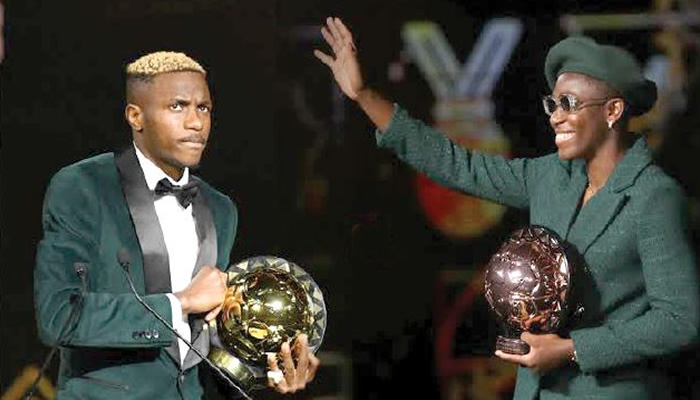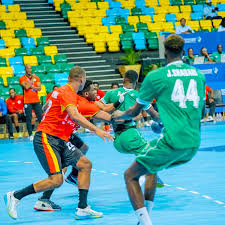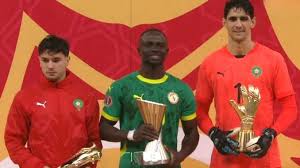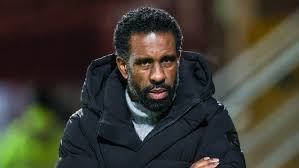
Independence Anniversary: Highs and lows of Nigerian sports in last 365 days
As Nigeria observes its 64th Independence Day anniversary, ABIODUN ADEWALE recalls key incidents in the recent year that add to the unique sports history of the country
Before Nigeria gained its independence in 1960, its citizens participated in international athletic competitions.
Sixty-four years later, the sports industry has become more significant, and the list of memorable experiences—both positive and negative—keeps growing.
World Cup ticket for U-19 Women's Cricket
Thanks to the women's U-19 squad, the Junior Yellow Greens, who secured the ticket in Rwanda on Sunday, one of "the so-called lesser sports," cricket, has given Nigeria something to celebrate just before another Independence Day anniversary. Despite the fact that rain cancelled their last match against Zimbabwe, the Nigerian ladies were deemed the best team in the qualifier, having gone through the group stages with a perfect record, including a one-wicket win against Zimbabwe. It’s the second time Nigeria will be qualifying for any cricket World Cup after the men’s U-19 team achieved the feat in 2019.
Coincidentally, the triumphant team will also arrive in the country on Tuesday, today, when the nation marks its 64th Independence Day anniversary.
Paralympians excel once more
Even if Team Nigeria's performance in the summer Paralympics in Paris 2024 may have been its weakest to date, the athletes' achievements rank among the greatest the nation has seen in recent memory. Among them was para-powerlifter Folashade Oluwafemiayo, who won a gold medal and broke her own world record in the women's over 86 kg para-powerlifting event. She also became the first para-athlete to lift 166 kg in history.
Bolaji Eniola, a para-badminton player, made history by being the first African player to win a medal in badminton at the Olympics or Paralympics. Two gold, three silver, and two bronze medals were won by Nigeria.
Oshoba's World Boxing Title
Elizabeth Oshoba, a Nigerian boxer residing in the UK, became the country's first female boxer to win a world title, a feat she achieved by knocking out Italy’s Michela Braga (6-0-1) in round 10 of their bout at the Royal Arena in Copenhagen, Denmark, on Saturday, January 13 to become the new WBC silver featherweight champion.
It was Oshoba’s fourth career knockout victory as she handed Braga her first-ever pro defeat, while she extended her perfect record in the pros to seven straight wins.
Ademola Lookman’s Europa League heroics
Dubbed the incoming African Player of the Year, Atalanta forward Ademola Lookman warmed his way into the hearts of Nigerians with his performance at the 2023 AFCON in Ivory Coast earlier this year, where he scored three goals to power Nigeria to a second-place finish. His individual brilliance also earned Atalanta their first European title, as he scored a historic hat-trick in their 3-0 win over Bayer Leverkusen in the 2024 Europa League final. The 26-year-old ended the season with 16 goals plus nine assists in all competitions.
Oshoala and Osimhen APOTY awards
Victor Osimhen and Asisat Oshoala of Nigeria won the African Player of the Year awards in December 2023 in Marrakesh, Morocco, marking the first time that Nigerians had won the title since Kanu Nwankwo and Mercy Akide in 1999.
Oshoala's victory marked a record-breaking sixth title, and Osimhen's win put an end to Nigeria's 24-year men's championship drought. It's safe to assume that, even though another Nigerian will probably soon take over the men's title, the evening revived Nigeria's domination in Africa. That might as well simulate the 1994 handover of power from Emmanuel Amuneke to Rashidi Yekini (1993). Since Nigeria's independence, Victor Ikpeba (1997) and Kanu (1996 and 1999) are two more Nigerians who have taken home the title. Akide (1999and 2001), Perpetua Nkwocha (2004, 2005, 2010, and 2011), and Cynthia Uwak (2006 and 2007) are the women to have won it as well.
2023 AFCON silver
Three years after gaining independence, in 1963, Nigeria hosted its inaugural AFCON. The Super Eagles, under the direction of Portuguese coach Jose Peseiro, placed second in the Ivory Coast tournament earlier this year, marking the fifth time the nation has placed second. After a tough tournament, they were defeated 2-1 in the final by the hosts, Ivory Coast. William Troost-Ekong, the defender and vice captain, scored three goals, one of which came in the championship match, to earn the title of Player of the Tournament.
LOWS
Paris Olympics no-show
After Nigeria's 88-man Olympic team in Paris 2024 failed to bring home any medals, rumours of misfortune over the country's sports industry reappeared. In the history of the nation's Olympic Games, which started in Helsinki in 1952 (before to statehood), this was the seventh time. Nigeria began participating in the Games prior to its independence in 1960, but it wasn't until Tokyo in 1964—thanks to the bronze medal that the late boxer Nojeem Maiyegun earned—that the nation took home its first medal.
The Ofili Saga
At the 2024 Summer Olympics in Paris, Nigerian sports also reached a new low point when sprinter Favour Ofili protested about being disqualified from the women's 100-meter race despite qualifying. After losing out on pre-competition testing, the nation had already suffered a setback when it came to the sprinter's eligibility to run at the 2020 Tokyo Olympics.
In addition to other concerns that rocked the nation's N9bn participation in the Games, Minister of Sports Development John Enoh has established an investigating commission to determine the reason for Ofili's omission in Paris.
Lost glory of facilities
Despite the fact that there are enormous stadiums in practically every Nigerian metropolis, there is only one authorised stadium—64—that may host CAF matches. While other venues, like as the National Stadium in Surulere, deteriorate, the Godswill Akpabio Stadium in Uyo, home of the Super Eagles, is the sole venue authorised by CAF to hold games. In 1999 and 2009, the nation hosted two FIFA tournaments, with the stadiums acting only as locations for clubs.
U-17 World Cup/AFCON absentee
With five FIFA U-17 World Cups, Nigeria is the most successful country at that level, but has failed to make any impression in the competition since 2017, when they failed to qualify.
Nigeria's Golden Eaglets have won five global championships in different generations (1985, 1993, 2007, 2013, and 2015), demonstrating the nation's ability to produce talented athletes. Nevertheless, following their disastrous performance at the WAFU B tournament earlier this year, they will miss the back-to-back tournaments in 2023 and 2025.
The Nigeria Football Federation further complicated their predicament by first declaring that they had qualified for the previous tournament in Ivory Coast the following year, then claiming that their 3-2 victory against Ghana in a third-place match had not been sufficient to guarantee them a seat.
Prohibitions on doping
There has been an extensive list of Nigerian athletes penalised for doping offences since 1960, and that figure rose in late 2023 and early this year. Nigerian sprinter Divine Oduduru and boxer Cynthia Ogunseilore came under the hammer of different bodies for being involved with performance enhancers.
Due to two anti-doping rule violations (ADRVs), Oduduru was subject to a six-year ban after the Athletics Integrity Unit declared that there was "overwhelming evidence" against him. The case started when American authorities accused therapist Eric Lira of giving Olympic athletes performance-enhancing medications.





